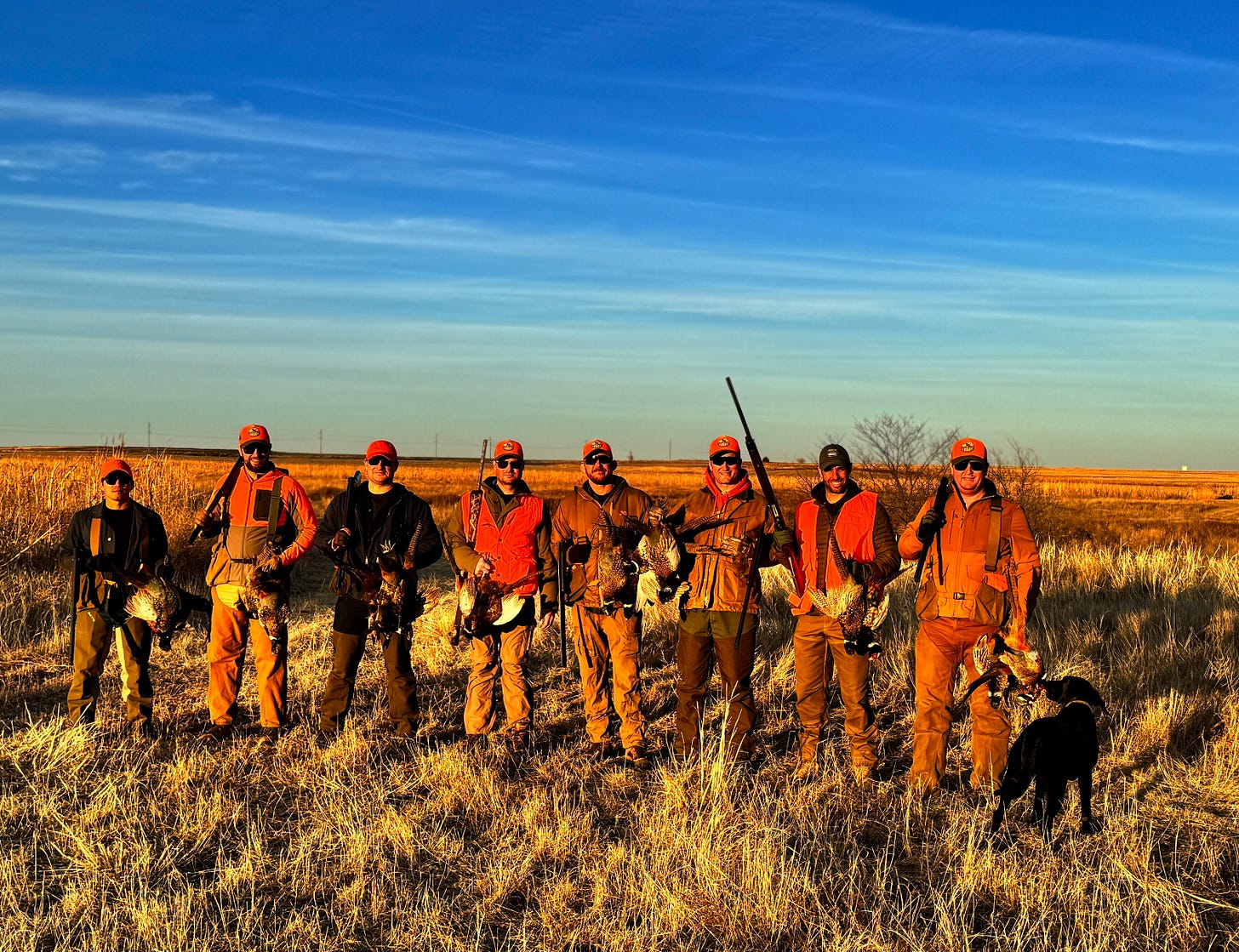The Art of Feedback
Why giving and receiving feedback is so hard
I took a much-needed break this week from grading papers and presentations to go pheasant hunting in Kansas with old college and Army friends. There’s something special about the laughter, memories, and camaraderie of working as a team on a hunt where you don’t have to be quiet. Nothing humbles you faster than missing an easy shot while your buddies roast you for “letting that bird go free.” It’s one of those rare opportunities where bonds are formed and strengthened, becoming traditions I hope to share with my son someday.
The break was much needed. Life has been busy lately (like it’s ever not busy). I got some space to reflect on one of the tougher parts of teaching: giving grades. My department chair once told me, “Students don’t get grades; they earn grades.” The grade they earn is direct feedback for how well they were able to meet the learning objectives throughout the semester.
When you’re in school, feedback is constant. You know exactly how you’re performing through tests, projects, and presentations. But out in the wild (aka the workforce), feedback is as rare as a pheasant that flies right at you. That steady stream of feedback dries up. If you’re lucky, you’ll get feedback during an annual performance review. If you’re really lucky, you’ll have a manager who gives regular, constructive feedback throughout the year.
Unfortunately, most of us don’t experience that (I am lucky and have a great manager who is a master at giving feedback). Why is it so hard to give feedback, whether good or bad? Why do we shy away from telling someone they aren’t performing well, or even that they’re excelling? Telling someone they’re not doing a great job feels like stepping on a landmine. Telling someone they are doing a great job feels awkward, like overpraising your kid for tying their shoes.
Feedback is an art, and not everyone is a great artist. But here’s the thing, feedback isn’t just a tool for managers. It’s a skill we need in all areas of life, whether it’s for our peers, our employees, or even ourselves. And to get better at giving feedback, we first need to master the skill of receiving it.
The 3 R’s
Here’s a simple framework I try to use when receiving feedback: Receive, Reflect, Respond.
Receive: Listen Without Defensiveness. Feedback can be uncomfortable, but growth requires an open mind. Separate Emotion from the input you are receiving. Focus on what’s being said, not how it makes you feel. Ask questions to fully understand the feedback, especially if it’s vague or unclear.
Reflect on Feedback: Assess the feedback validity. Not all feedback is useful. Consider the source and the context. Is this feedback something you’ve heard before? Recurring themes often signal areas for improvement.
Respond to Feedback: Feedback without follow-up is wasted. Decide on one or two concrete steps to implement. Show the person who gave you feedback how you’re applying it which helps build trust and encourages more honest feedback in the future. Revisit the feedback after some time. Ask, “Have you noticed improvement?”
Why Feedback Feels So Hard
The main reason we avoid feedback? Ego. Our ego is like an overprotective friend, jumps in to defend us. But it also blinds us. Instead of seeing feedback as a tool for growth, we see it as a threat. We fear judgment. We hear criticism as an attack instead of an opportunity. And as a result, we get defensive. But if we can let go of our ego, feedback becomes a mirror, a way to see our blind spots and improve. If we want to grow, we have to muzzle that voice, take a deep breath, and listen.
Feedback as a Leadership Skill
As leaders, feedback is a two-way street. Giving it and receiving it are equally important. But creating a culture of feedback requires intention.
Here’s how leaders can build a feedback culture:
1. Create a Safe Environment: Encourage honesty without fear of retaliation.
2. Ask for Feedback Regularly: When leaders seek feedback themselves, it sets the tone for the entire team.
3. Make Feedback Timely: The closer the feedback is to the action, the more impactful it is.
Conclusion
Pheasant hunting, oddly enough, has a lot in common with feedback. Sometimes, you miss a shot (with plenty of good-natured ribbing) but that doesn’t mean you stop trying. You reload and take better aim the next shot.
Feedback is one of the most powerful tools we have for growth, but it’s also one of the most underutilized. Whether you’re the one giving it or receiving it, the goal is the same: to get better.
So ask yourself: What feedback do I need to hear, and what feedback do I need to give?
Connect with Zach
Provide Feedback
Also, Check out the Prof Z Project Library, where I have added many resources (books, tools, articles, and podcast recommendations) for different topics such as entrepreneurship, leadership, operations, finance, personal development, real estate, and even health and fitness. It's a free resource, so enjoy a single location for valuable things I have found. Send me a message with any suggestions for adding to the library.





